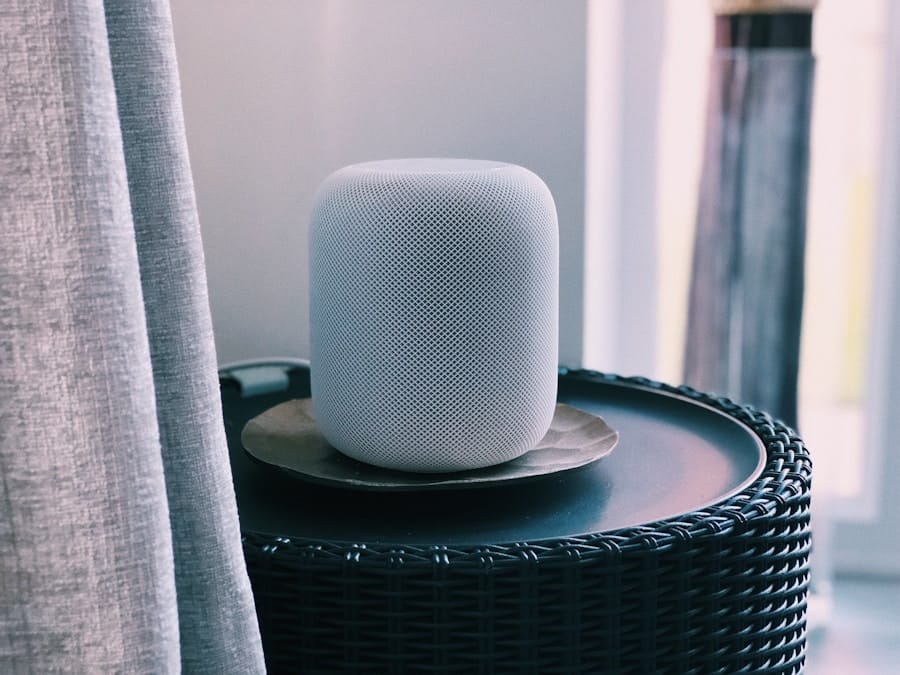The advent of smart home technology has revolutionized the way we interact with our living spaces, offering unprecedented convenience and control over various household functions.
However, as the number of connected devices increases, so does the complexity of ensuring data privacy and security.
The interconnected nature of smart home systems creates a vast network of data exchange, which can be vulnerable to breaches and unauthorized access. This reality raises critical questions about how personal information is collected, stored, and protected within these ecosystems. Data privacy in smart homes is not merely a technical issue; it encompasses ethical considerations regarding user consent, data ownership, and the potential for misuse of information.
As smart devices collect vast amounts of data—ranging from daily routines to sensitive personal information—users must navigate a landscape fraught with risks. The challenge lies in balancing the benefits of convenience and automation with the imperative to safeguard personal data. This article delves into the role of artificial intelligence (AI) in enhancing data privacy and security within smart homes, exploring its applications in encryption, intrusion detection, real-time monitoring, and user behavior analysis.
Key Takeaways
- Smart home data privacy and security are crucial for protecting personal information and preventing unauthorized access to smart home devices.
- AI plays a significant role in enhancing smart home security by analyzing data patterns, detecting anomalies, and preventing potential security breaches.
- AI-powered encryption and authentication provide advanced security measures to safeguard smart home devices and data from unauthorized access.
- AI-driven intrusion detection and prevention systems help in identifying and mitigating security threats in smart homes in real-time.
- AI is instrumental in data anonymization and privacy protection by removing personally identifiable information and ensuring the confidentiality of smart home data.
Understanding the Role of AI in Smart Home Security
Proactive Threat Detection
For instance, AI systems can analyze user behavior over time to establish a baseline of normal activity. When deviations from this norm occur—such as unusual access patterns or unexpected device interactions—AI can trigger alerts or initiate automated responses to mitigate risks. This proactive approach to security is essential in an environment where threats can emerge rapidly and without warning.
Secure Device Interactions
Moreover, AI enhances the ability of smart home devices to communicate securely with one another. Through the use of natural language processing and contextual understanding, AI can facilitate secure interactions between devices, ensuring that commands are executed only when they originate from authorized users. This capability is particularly important in scenarios where voice-activated assistants are involved, as they must discern between legitimate commands and potential spoofing attempts.
Building a Resilient Infrastructure
By integrating AI into the security protocols of smart home systems, manufacturers can create a more resilient infrastructure that adapts to evolving threats while maintaining user trust.
AI-Powered Encryption and Authentication for Smart Home Devices

Encryption is a cornerstone of data security, particularly in environments where sensitive information is transmitted across networks. AI can significantly enhance encryption methods used in smart home devices by optimizing key management processes and automating encryption protocols. For example, AI algorithms can dynamically generate encryption keys based on real-time assessments of network conditions and threat levels.
This adaptability ensures that even if a key is compromised, the system can quickly switch to a new key without disrupting user experience. Authentication processes also benefit from AI integration. Traditional methods often rely on static passwords or PINs, which can be easily compromised through phishing attacks or brute-force methods.
In contrast, AI-driven authentication systems can utilize biometric data—such as facial recognition or fingerprint scanning—to verify user identity more securely. These systems can learn from user interactions, improving their accuracy over time and reducing the likelihood of false positives or negatives. By implementing robust encryption and authentication measures powered by AI, smart home manufacturers can significantly enhance the security posture of their devices.
AI-Driven Intrusion Detection and Prevention in Smart Homes
Intrusion detection systems (IDS) are critical components of any comprehensive security strategy for smart homes. AI enhances these systems by enabling them to analyze vast amounts of data from various sources—such as sensors, cameras, and user activity logs—to identify potential intrusions in real time. For instance, an AI-driven IDS can monitor network traffic for unusual patterns that may indicate unauthorized access attempts or malware infections.
By employing machine learning techniques, these systems can continuously improve their detection capabilities based on historical data and emerging threat vectors. In addition to detection, AI can also play a crucial role in prevention strategies. Once a potential intrusion is identified, AI systems can automatically initiate countermeasures to thwart the attack.
This could involve isolating affected devices from the network, alerting homeowners via mobile notifications, or even contacting law enforcement if necessary. The speed at which AI can respond to threats is a significant advantage over traditional security measures, which may rely on human intervention that could introduce delays. By integrating AI into intrusion detection and prevention systems, smart homes can achieve a higher level of security that adapts to new challenges as they arise.
The Role of AI in Data Anonymization and Privacy Protection
As smart home devices collect extensive data about users’ habits and preferences, concerns about privacy become paramount. AI offers innovative solutions for data anonymization, which is essential for protecting user identities while still allowing for valuable insights to be gleaned from aggregated data. Techniques such as differential privacy enable AI systems to analyze datasets without exposing individual user information.
By adding controlled noise to the data or aggregating it across multiple users, organizations can derive meaningful analytics while safeguarding personal privacy. Furthermore, AI can assist in developing privacy-preserving protocols that govern how data is collected and shared among devices. For example, machine learning algorithms can be employed to determine which data points are essential for functionality and which can be omitted without compromising user experience.
This selective data collection minimizes exposure while still allowing smart home systems to operate effectively. As consumers become increasingly aware of their digital footprints, the ability to implement robust anonymization techniques will be crucial for manufacturers seeking to build trust with their users.
Leveraging AI for Real-time Monitoring and Response to Security Threats

Proactive Threat Detection
For instance, an AI system could monitor video feeds from security cameras to detect unusual movements or behaviors that deviate from established patterns. If an anomaly is detected—such as an unfamiliar person lingering near entry points—the system could alert homeowners instantly via their smartphones.
Automated Response Mechanisms
In addition to monitoring capabilities, AI can facilitate automated responses to identified threats. For example, if a security camera detects motion during unusual hours when no one is expected at home, the system could automatically lock doors or activate alarms without requiring user intervention.
Enhanced Security and Peace of Mind
This level of automation not only enhances security but also provides peace of mind for homeowners who may be away from their properties for extended periods. By leveraging AI for real-time monitoring and response mechanisms, smart homes can create a more secure environment that adapts dynamically to emerging threats.
AI-Powered User Behavior Analysis for Smart Home Security
Understanding user behavior is crucial for enhancing security measures within smart homes. AI-powered analytics can track how individuals interact with their devices over time, establishing behavioral baselines that inform security protocols. For instance, if a homeowner typically disarms their security system at 7 AM but suddenly does so at midnight without prior indication of an anomaly, this deviation could trigger an alert for potential unauthorized access or a security breach.
For example, an AI system could learn that a family member frequently forgets to lock doors when leaving home and automatically engage locking mechanisms based on their departure patterns. By utilizing AI to analyze user behavior comprehensively, smart home systems can enhance both convenience and security while minimizing the risk of human error.
Future Implications and Challenges of AI in Smart Home Data Privacy and Security
As the integration of AI into smart home technology continues to evolve, several implications and challenges will shape the future landscape of data privacy and security. One significant concern is the potential for increased sophistication in cyberattacks targeting smart home devices. As attackers become more adept at exploiting vulnerabilities in interconnected systems, manufacturers must remain vigilant in updating their security protocols and ensuring that AI-driven defenses are robust enough to counteract emerging threats.
Additionally, ethical considerations surrounding data collection and usage will become increasingly prominent as consumers demand greater transparency regarding how their information is handled. Striking a balance between leveraging data for improved functionality while respecting user privacy will be paramount for manufacturers seeking to maintain consumer trust. The development of regulatory frameworks governing data privacy in smart homes will likely play a crucial role in shaping industry standards moving forward.
In conclusion, while the integration of AI into smart home technology presents numerous opportunities for enhancing data privacy and security, it also introduces complex challenges that must be addressed proactively. As technology continues to advance at an unprecedented pace, stakeholders must collaborate to ensure that innovations prioritize user safety and privacy while delivering the convenience that modern consumers expect from their connected living environments.
In a related article discussing the latest advancements in technology, Huawei has recently unveiled the Mate 50 Pro, a smartphone that boasts cutting-edge AI capabilities to enhance user experience and security. This aligns with the theme of utilizing AI to improve data privacy and security in smart homes. To learn more about the Huawei Mate 50 Pro, you can read the article here.
FAQs
What is AI’s role in enhancing smart home data privacy and security?
AI plays a crucial role in enhancing smart home data privacy and security by enabling advanced threat detection, anomaly detection, and behavior analysis to identify and mitigate potential security risks.
How does AI help in protecting smart home devices from cyber threats?
AI helps in protecting smart home devices from cyber threats by continuously monitoring and analyzing network traffic, identifying unusual patterns, and detecting potential security breaches in real-time.
What are the benefits of using AI for smart home data privacy and security?
The benefits of using AI for smart home data privacy and security include improved threat detection, proactive security measures, real-time monitoring, and the ability to adapt to evolving cyber threats.
Can AI help in ensuring the privacy of personal data in smart home devices?
Yes, AI can help in ensuring the privacy of personal data in smart home devices by implementing advanced encryption techniques, access control mechanisms, and data anonymization to protect sensitive information.
How does AI contribute to the development of secure smart home ecosystems?
AI contributes to the development of secure smart home ecosystems by providing intelligent security solutions, automating security processes, and enabling predictive analysis to prevent potential security breaches.

